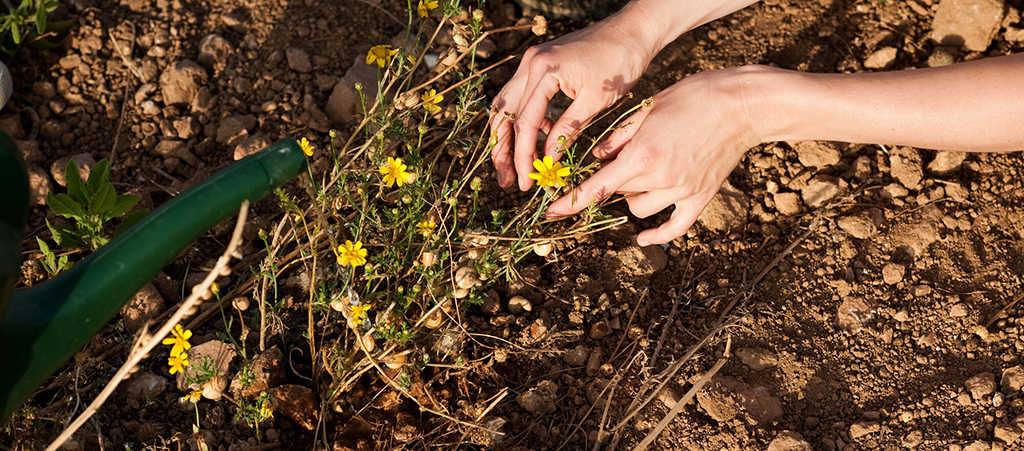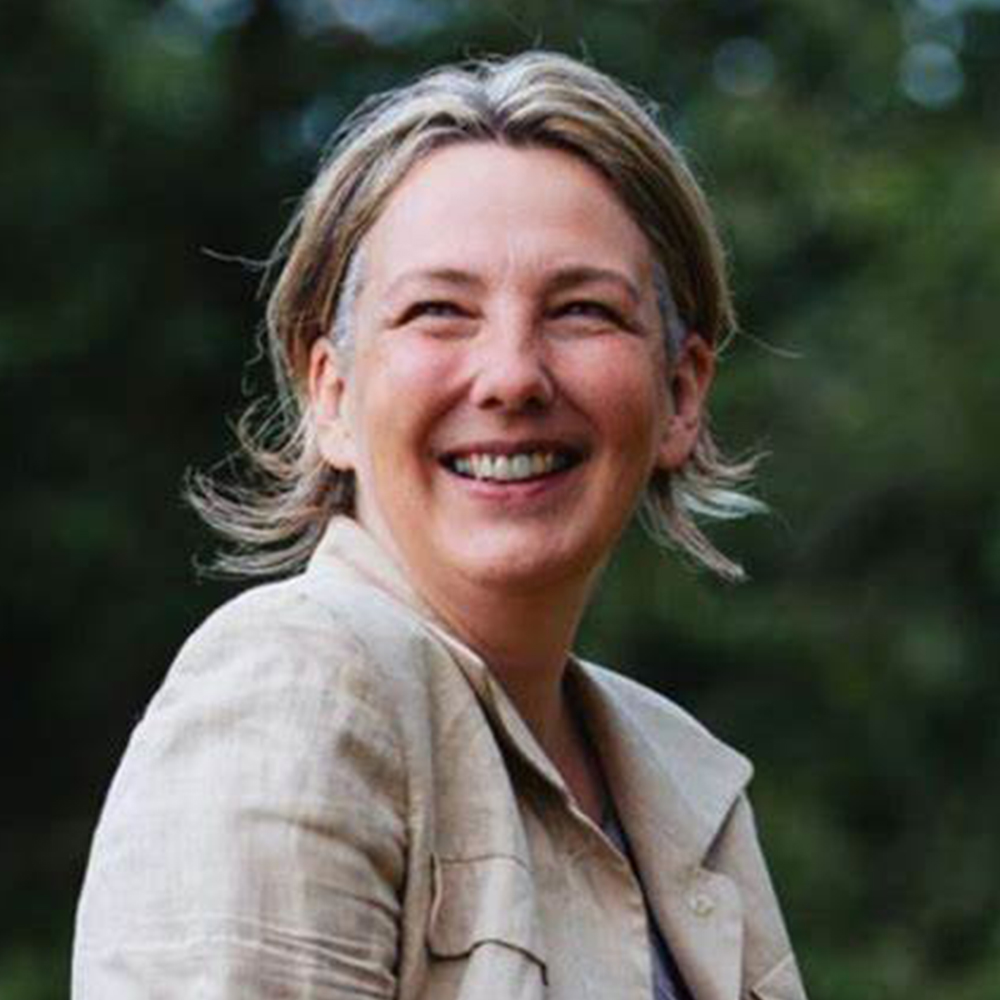To mark Earth Day and the launch of Weleda's #SaveEarthsSkin campaign, Jayn Sterland, Managing Director of Weleda UK, talks about the importance of soil for both our plants and our planet.
Healthy soil creates healthy plants and a healthy planet. It’s really this simple and yet in our drive for ‘progress’, we seem to have forgotten that soil is a living organism, containing more life in a teaspoonful than there are people on the planet. Put simply, a handful of soil is a handful of life. Nowhere is life so densely packed: except for a few earthworms, snails, and beetles, we hardly ever see the vast majority of living creatures, and yet there is a tremendous diversity of species in the soil. Scientists have counted the individual organisms in the soil and found that biodiversity is nowhere greater with countless plants, animals, fungi, and microorganisms busy underground, transforming dead organic material into humus. They contribute to a healthy, productive ecosystem. Just one cubic metre of healthy soil is home to over 5,000 billion living organisms. By comparison, 7.8 billion people live on Earth.
It is estimated that 37% of the earth’s surface is managed by humans and we use this thin layer as if it were an inexhaustible source, with over 20 billion tonnes of fertile soil lost every year. It gets worse: the Intergovernmental Panel on Climate Change (IPCC) attributes 31% of greenhouse gas emissions directly to agriculture and land use change. According to projections, 60,000 to 400,000 metric tonnes of microplastics land on Europe’s fields every year, spread by sewage sludge. We are building on green fields, sealing the surface with concrete and asphalt, and irretrievably destroying the soil. Overgrazing and forest clearing are also damaging the soil. When degraded, soil can no longer fulfil its multiple functions. It loses its ability to absorb rainwater and channel it into the ground. It is estimated that one quarter of the world’s land used initially for farming has been severely damaged or devastated and that in areas of intensive farming (such as the UK), our soil is being destroyed 10 times faster than it is being created. I could go on, but I’m sure you get the picture.
At Weleda we think it’s time to GET DIRTY, to talk about soil and to campaign to ‘Save Earth’s Skin’. This year we are investing in creating healthy soils more than we have ever done before. Not because we are farmers (although we are, we farm over 250 square kilometres globally), but because we know it is a viable solution to the climate emergency and reducing global biodiversity loss. Everything we use comes from Earth, and we are using our precious resources faster than they can be replenished – 1.6 planets' worth a year. The good news is that not only can farming become regenerative, but it also has the power to lock carbon back into the soil. It is estimated 2,700 billion tonnes is locked in the soil globally, which is three times more than in our atmosphere — so it is vital that the carbon stays put, and we add to it as a giant carbon sink.
I am excited to announce this year we are working directly with influencer and climate activist Arizona Muse and her soil charity DIRT, together with the Sustainable Soil Alliance, to spread the word (and the facts). We continue to work with the charity TreeSisters and will plant a tree for every Skin Food product sold from April to the end of June. We are expanding our biodynamically farmed areas to increase the proportion of biodynamic raw materials to 30% of our total organic ingredients. We are activating twelve soil projects globally, and here in the UK we are ‘getting dirty’ through many initiatives including compost making to improve soil health, gardening for wildlife, planting, educating, and making a difference. All with the aim of growing awareness, spreading care and kindness to ourselves and to the earth’s skin because we are not only part of nature, we are nature.


